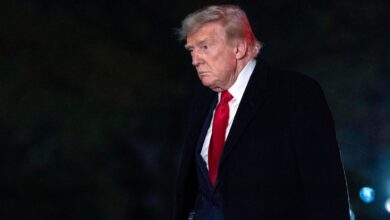Fuel-starved and stuck in crisis, Sri Lanka orders work from home

Out of fuel and struggling to contain a deepening economic crisis, Sri Lanka on Friday ordered government employees to work from home to reduce the rush on public transport.
The government of President Gotabaya Rajapaksa, who has faced months of sustained protest over mismanagement of the economy, told the employees of the state and education sectors to not show up to the office for two weeks, according to a statement from the Minry of Public Adminration. Workers deemed essential were exempted.
Sri Lanka already had reduced working days declaring Friday a holiday and urging government employees “to engage in home gardening or cultivating short-term crops during these days on which the offices are closed” to help overcome the food shortage.Best of Express PremiumPremiumPremiumPremiumPremium
The work-from-home announcement described the new order as a response to “the situation, where it has become difficult to satisfy transport requirements.”
A shortage of foreign cash reserves for essential imports has worsened Sri Lanka’s crisis, which has been attributed to mismanagement members of the powerful ruling Rajapaksa family. Among their catastrophic policies were tax cuts that shrunk revenue already hit a drop in tourism income because of the pandemic, and a ban on chemical fertilizer to promote organic farming, which devastated farmers.
Months of protests have forced much of the ruling family, including older brother Mahinda Rajapaksa, who was prime miner, out of the government. But Gotabaya Rajapaksa has held firm as president, introducing a new prime miner and hoping to attract aid from friendly nations and negotiate with the International Monetary Fund to restructure the country’s mounting debt.
The new prime miner, Ranil Wickremesinghe, has told Sri Lanka’s parliament that the country would need $5 billion to import essential items over the next six months “to ensure our daily lives are not disrupted,” much of it going toward fuel purchases.
“The country spends $500 million per month on fuel,” Wickremesinghe said.
Three-wheeler drivers wait in a queue to buy petrol due to fuel shortage, amid the country’s economic crisis, in Colombo, Sri Lanka June 17, 2022. (Reuters Photo)
Fuel queues eased slightly after some shipments arrived from India last month. But as the stocks dwindled again, the government has sought to contain demand — ordering workers to stay home and introducing new rationing in which a vehicle can receive fuel only once a week. The cooking gas shortage has become so hopeless that people have stopped queuing. Instead, in many neighborhoods they have left their gas cylinders in queue, chaining them together to prevent theft.
At least 10 people have died in fuel queues since the beginning of the crisis, according to local news reports.
The United Nations has warned that the economic crisis is putting one-quarter of Sri Lanka’s 21 million people at risk of food shortages. As food inflation exceeds 50% and hospitals have exhausted stocks of essential medicine, the U.N. appealed for about $50 million to provide four months of “lifesaving assance” to nearly 2 million of the worst hit.
“If we don’t act now, many families will be unable to meet their basic food needs,” said Hanaa Singer-Hamdy, U.N. resident coordinator in Sri Lanka.




